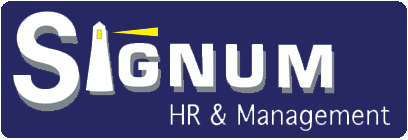Read more
Assessments
Whether you are considering an external candidate, or someone who has been in the company for years, it remains difficult to predict how someone is going to behave in a new role or in a different environment. Success in the past is no guarantee for the future
Success has everything to do with the levers below the visible behaviour, and how they fit into the new role or environment.
We give you insights into the deeper motivators of the behaviour & clear advice about the match with the profile you are looking for. And if the advice is positive, we also tell you what the do's and don'ts are to make this recruitment or promotion a success.
The Components of Behaviour
Behaviour = f { Nature, Nurture, Environment }
Human behaviour has 3 components:
- Nature: what we received at birth
- Nurture: what we have learned in the meantime
- And what the impact is of the current environment on our behaviour
A lot of this in unconscious… So asking someone how they think they will behave in a certain situation, is often not enough.
Someone who is a top performer in a structured environment, can feel completely lost in an environment where he is expected to bring the structure himself. A motivated engineer can lose his drive when he is expected to be dealing more with internal politics that with machines. Success in one company doesn’t ensure success in the next.
That’s why during the intake meeting we take the time to focus on what is special about your company, this role, the team, … This allows us to build a clear profile for the job, that takes the 3 dimensions of behaviour into account.
Our approach
During the intake meeting, we make sure that we fully understand the ideal profile for the job, that we can visualize the superman or superwoman you are looking for. We summarize this in a clear job profile that takes into account the different building blocks of a competence: knowledge, skills and attitude. This then becomes the filter through which we look at the candidates.
People are so complex that you can only capture the tip of the iceberg in a standard interview.
The more perspectives you get, the clearer the image becomes. That is why we ask the candidate to paint an objectified self-image (via an online questionnaire) and to complete some relevant intellectual questionnaires, which give us an idea of ??how quickly someone can learn and evolve.
Then we will get to know the candidate, in all his dimensions, in an in-depth interview. Who are they as a whole human being, and how does this next step in their career make sense for them.
In this interview, we don’t just focus on what someone has done so far, but also and especially on their motivation and the underlying levers of their behaviour:
- How does the candidate come to action?
- How do they build relationships?
- How do they take ownership or not
- How do they build credibility
- What motivates them - not only in the environment, but also in terms of values ??and standards
- When are they in-powered? What can dis-in-power them - and how do they behave differently then?
Our report doesn’t just describe the behaviour you can expect from the candidate, but we also give clear advice about the match with the profile. If we can recommend the candidate for the position, we will also tell you how you can integrate them more quickly and how you can keep them motivated.
